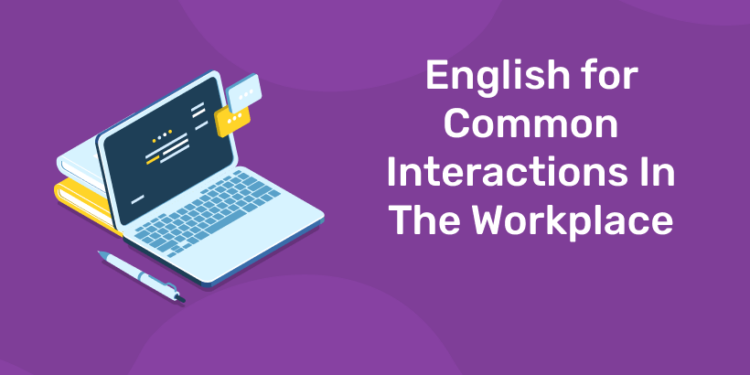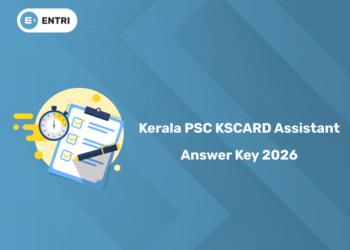Table of Contents
If you are planning to work Overseas or you are planning to work in a multinational company then you must have proper information related to the common interactions that you will have to undertake in your workplace in English. English is one of the most widely spoken languages Overseas and abroad and if you are going abroad from India then the most common language that you will have to speak in English. If you have your job offer in your hand then you must take into account learning about English for Common Interactions In The Workplace. It is important to work on your Basic English communication skills in order to have your position not compromised while working in a country which is a native English speaking country. We will also share the norms for speaking english for professional.
Check out the video lesson for spoken English here
English Interactions In The Workplace
Working with several native English speaking people can be very intimidating for the people who do not come from a native English speaking country. However, if you perform your duties with hard work and diligence, you will be able to gain a high position in the company without even having to be fluent in English. However, all of the people who are going abroad must have proper information related to the common interactions that they will have to go through while they are setting their foot in a country which mainly speaks a language that is foreign to them. You can continue learning English and you will be fluent in no time if you are taking your time and practising the language. Given below are some basic phrases that you can use in your workplace.
Greetings
- “Good morning/afternoon”
- “Let’s begin”
- “I’d like to welcome everyone”
- “Since everyone is here, let’s get started”
- “I’d like to thank everyone for coming today”
Introduction
- “I’m [your name]. I’ll keep this meeting brief as I know you’re all busy people”
- “I’m [your name] and I arranged this meeting because…”
- “Let’s go around the table and introduce ourselves, [name] do you want to start?”
- “Let’s introduce ourselves quickly – please state your name, job title and why you are here”
Aim Of The Discussion
- “I’ve called this meeting in order to”
- “We’re here today to discuss”
- “There are [number] items on the agenda. First…”
- “Today I would like to outline our plans for”
- “Thank you for getting here on time. Today we’re here to discuss”
- “We’re here to discuss the progress on [name of project] project”
- “Due to issues identified in [project name], we’re here to come up with a quick resolution”
Follow Up Questions
- “[Name], can you have these action points finished by next week’s meeting?”
- “Before the next meeting, I want [action point] completed so we can discuss the results”
- “By the next meeting, we’ll have [action point] in progress”
Polite Objections
- “Sorry, but just to clarify”
- “Sorry I didn’t quite hear that, can you say it again?”
- “That’s an excellent point [person’s name], what about doing [action point] as well?”
- “From our department’s perspective, it’s a little more complicated. Let me explain”
- “Excuse me for interrupting”
- “Can you repeat that please?”
- “Can you run that by me one more time?”
- “Can you repeat that in a simplified way?”
Asking Opinions
- “Are there any more comments?”
- “What do you think about this proposal?”
- “Are there any areas of this project we are not thinking about?”
Conclusions
- “To summarize then, let me just run through what we’ve agreed here”
- “Before we end, let me just summarize the three main points”
- “To sum up what I’ve presented”
- “That brings me to the end of my presentation, thank you for listening”
- “Any final thoughts before we close the meeting?”
- “If you have further questions or want to discuss any of it in more detail, we can meet privately or you can send me an email [have an email address on the final presentation slide]”
- “I’d like to thank everyone for sharing their time today and any feedback would be valuable”
- “So do we think this is the correct way to proceed?”
- “Are there any objections to what I covered?”
| Download free PDFs on various aspects of the English language! | |
Benefits For English In The Workplace
1: Which of the sentences below is grammatically correct?
There are several benefits that you will be provided if you have proper information related to the common interactions in the workplace in English. It is important to talk in English when you are working with an international client and it is also important to talk in English when you are working in an MNC which supports talking in English. There are various benefits of learning English as a communication language because it is widely used in the world today and it is also a very needed skill in any type of job in a corporate industry. You can check out some benefits of English in the workplace from the pointers given below.
Better Communication
If you have proper information related to the basic interactions in the workplace in English then you will have proper communication with all of the other employees and all of the other employees will be able to understand what you are saying to them. If you have good knowledge of English then you will be able to communicate effectively with the International clients and they will also in return trust you with all of their work which will make you a better employee. Having proper fluency in English is nowadays considered a sign of a very reliable employee in the corporate industry. Make sure that your communication skills are 10 on 10.
Wide Area Of Understanding
English is now found everywhere on the Internet and it is also estimated that now over 80% of the pages available on the internet are written in English. When you have proper information related to Basic English then you will be able to have a wide area of understanding which means if any type of document is presented to you in English then you will be able to decode the information present in that document. If an international client provides you with a pdf that is in English then you will be able to decode the idea behind the PDF and work accordingly.
Reliability And Trust
When you have proper skills in spoken English then your employees will be able to rely on you. When you are working with an international client and you are speaking influent English then they will be able to understand what you are saying and as a result will be able to trust you with the work that they have appointed you. You can easily game the trust of international coins when you are speaking in their language because it helps them in getting a sense of familiarity with the other person and this will result in them creating a trust overbound with you. You just need to be confident when you are speaking English in your workplace.
Check out the crash course for spoken English here
Entri is a learning platform which comes out with skilling opportunities such as spoken English and other skilling opportunities for marketing and advertising. You can take into account our mock test series available on the platform and you can also take into account fresh courses available on the platform that will help you to identify the basics of the English language and then you will be able to learn the complexities of the language without having to worry about going to a particular coaching centre. Our video lessons are created by well-known experts taking into account the latest English trends.









